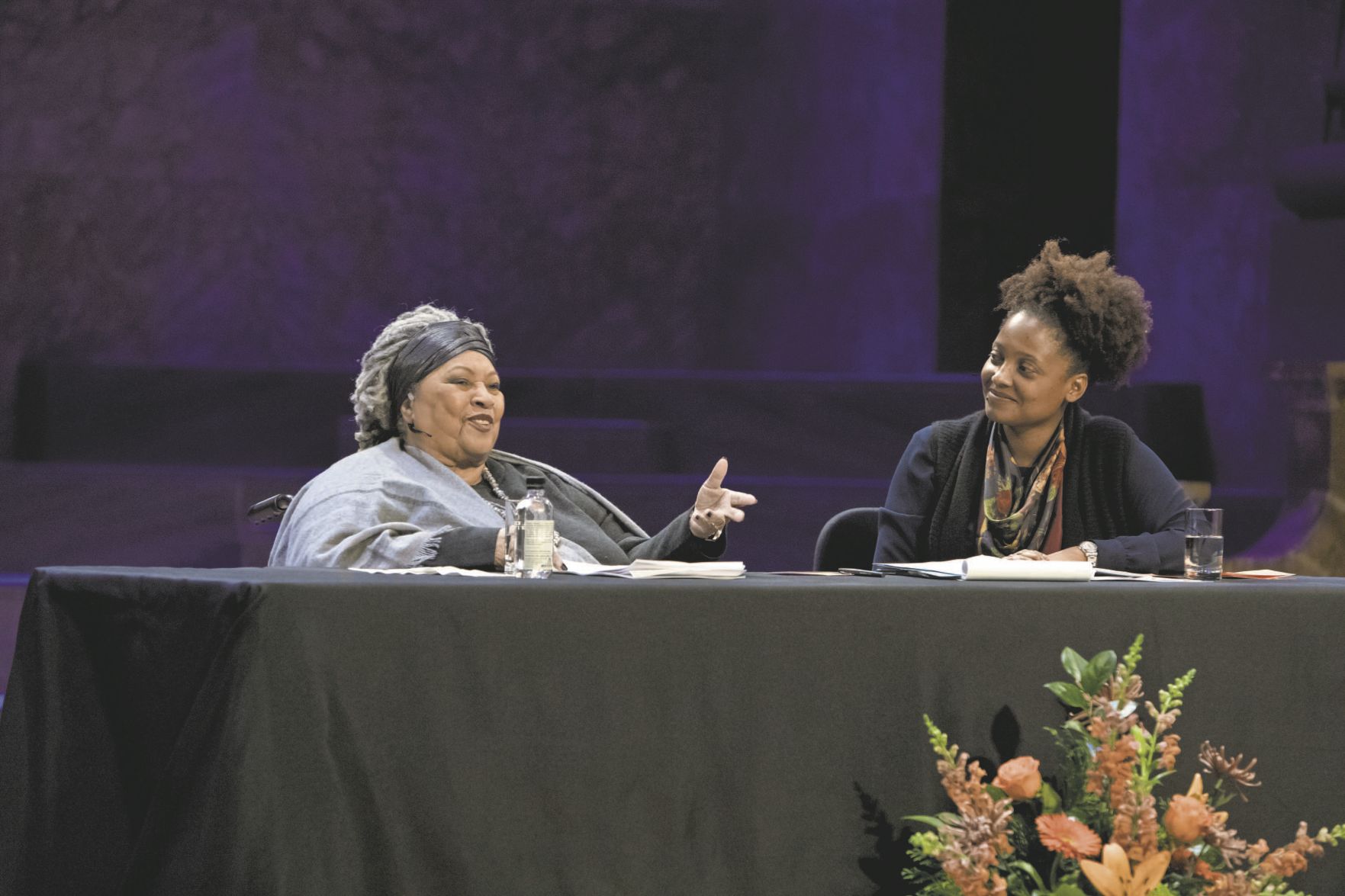By Carson Welch, Correspondent
Nobel Laureate and Robert F. Goheen Professor Emeritus in the Humanities Toni Morrison gave a keynote address for “The Princeton and Slavery Project” in the University’s Richardson Auditorium on Friday, titled, “’Race,’ Imagination, and the Birthpains of Justice.”
“They’re going to rename a building with my name,” Morrison said, beginning her remarks by referring to the university’s decision to rename “West College” in her honor, partially as a response to the protests over the campus’s iconography of Woodrow Wilson. “Beyond my fantasies, though, this commitment to change is profound, and it requires our attention to the subject we are here to discuss: Princeton and slavery,” Morrison continued. “The history of Princeton’s involvement in slavery, both its support of the laws of that institution and its abandonment of that culture, is a very long and complicated one.”
As a novelist and a critic, Morrison has been a leading thinker of America’s troubled racial history. Critics have long praised Morrison, a recipient of the Pulitzer Prize and the PEN/Saul Bellow Award, among many other distinctions, for her imaginative work on the experience of slavery and its lasting effects. Her most recent book, “The Origin of Others” (Harvard University Press, 2017), further explores issues of race and identity, drawing from her lecture series to focus on the question: “What motivates the human tendency to construct others?”
Over the course of the address, Morrison spoke about enslavement within the large scope of human history, as well as within its local context at an old and wealthy institution like Princeton University.
“Enslaved populations built civilizations and neutered them. On the one hand, slavery was a moral battle, and on the other, a financial struggle,” Morrison said. “Princeton was not least among the colleges made and maintained by the wealth of slave owners, slave traders, shipping families who specialize in the capture of slaves.”
The series of events that began on Friday mark the launch of “The Princeton and Slavery Project,” whose website catalogues more than 350 primary source documents, maps, graphs and videos that total more than 800 printed pages. The project’s goal is to lay the groundwork for “a rich and deeply informed conversation about the history of our University and our town.”
“The history of Princeton University is the history of the United States of America writ small,” said Dr. Martha A. Sandweiss, a professor in Princeton’s history department who founded “The Princeton and Slavery Project” nearly five years ago when she began teaching an undergraduate seminar that explored the town and the university’s past as it related to the institution of slavery. As one of the first universities in the country, Sandweiss said, Princeton is “a place where liberty and slavery intertwined from the start.”
“Who knows how long it will take us to truly comprehend what it now reveals about the history we descend from,” said United States Poet Laureate and director of the Princeton Creative Writing Program Tracy K. Smith, who introduced Morrison.
“There are people who are coming after us; we are not the ultimate generation,” Morrison said in a question-and-answer session with Smith that followed the address. The two writers spoke about how “so many of the things we thought were long-gone are back, chasing us,” as Smith put it. Many of the questions, some of which audience members had commented on the university’s Facebook simulcast, asked Morrison for advice as to “dismantling systems of oppression,” but Morrison was quick to return to the idea of a process.
“We’re not going to solve all these things,” Morrison said. “What we’re going to do is push the inquiry forward. Keep pushing, keep pushing. And then some of your great-grandchildren will take over and it will be better because they will have known us, and known what we thought, and the mistakes we made, as well as the solutions we can provide.”

